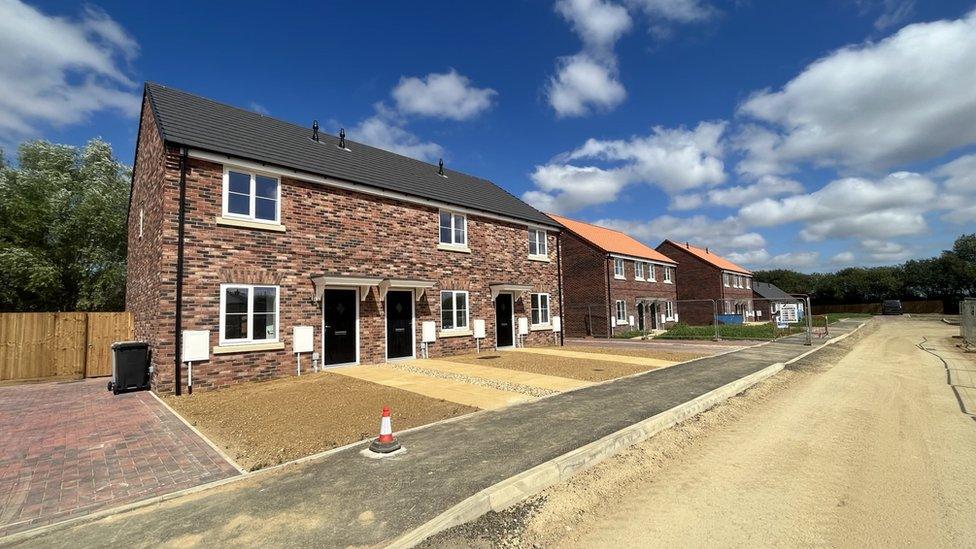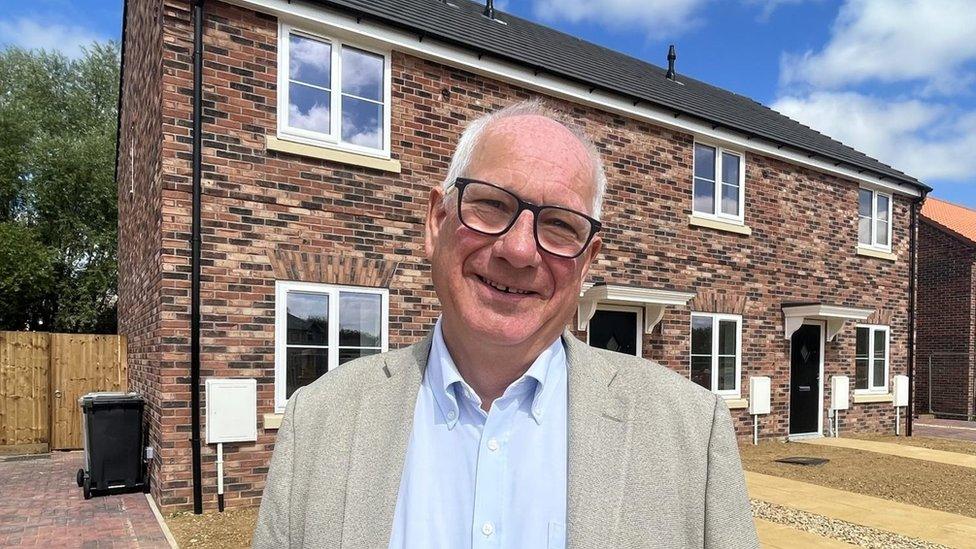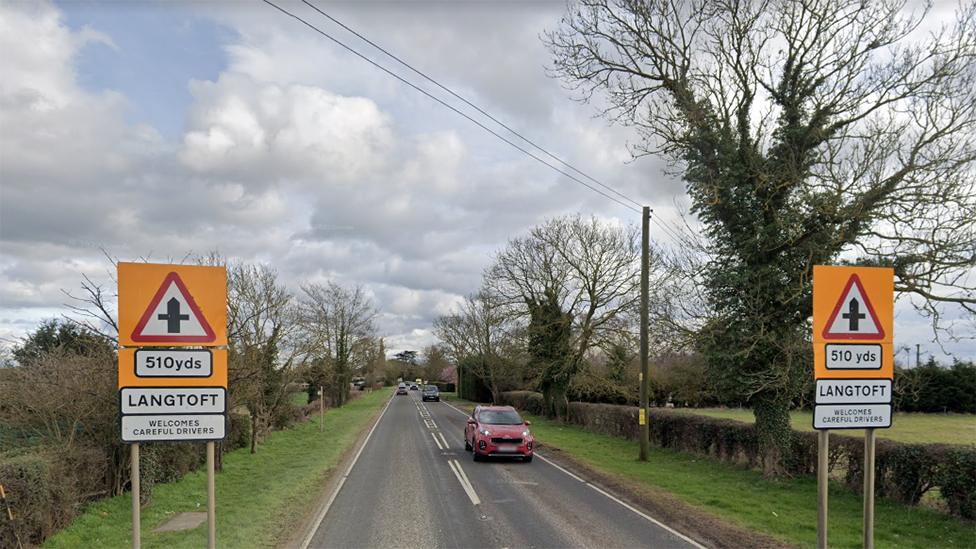Lincolnshire council leader defends new homes for refugees
- Published

The homes are on the new Woodland Rise estate in Langtoft
A council leader has defended plans to buy 12 homes in a Lincolnshire village to house refugees.
The properties in Langtoft, near Market Deeping, cost £1.8m and will be jointly paid for by the government and South Kesteven District Council.
Some in the area have questioned the decision to house 12 families in a village of just over 500.
Council leader Richard Cleaver said the refugees housed at the development would work and pay rent.
Independent Mr Cleaver, who took over as leader in May, said it had been an "obvious thing" to accept the deal to purchase the homes.
"In terms of value for taxpayer money, there is no way we could turn down an offer like that," he said.
Under the agreement, the council has secured the 12 homes on the Woodland Rise estate off Stowe Road, which had been earmarked as affordable housing,
It includes six two-bedroom houses, two two-bedroom bungalows, and four three-bedroom houses.
They will be used as temporary accommodation for Afghan and Ukrainian families who have arrived legally in the UK, the council said.
Afterwards they will be added to the council's social housing stock.

Council leader Richard Cleaver said the homes would be occupied by those who had come to the UK legally
Some residents in Langtoft expressed concerns to the Local Democracy Reporting Service about the lack of local amenities, suggesting a town would be a better option for refugees than a small village.
Calvin Allen admitted he had reservations: "I suppose they've got to live somewhere, but nobody wants them on their doorstep."
Meanwhile, Mick Greenwood said his concern was the number of families: "I totally agree with the council, but I think it's too many families."
While on a visit to the site, Mr Cleaver said those being housed were not just single men, but would include mothers and children.
He stressed they would be charged rent and intended to work.
"These are not refugees that will be living at home all day, twiddling their thumbs," he said.
Mr Cleaver stated the funding for the project did not come from council tax.
"Everything to do with council housing is completely separate from everything else we do. We already had that money in the pot," he said.
"Council tax cannot subsidise council housing, that is illegal."

Follow BBC East Yorkshire and Lincolnshire on Facebook, external, Twitter, external, and Instagram, external. Send your story ideas to yorkslincs.news@bbc.co.uk, external.
Related topics
- Published8 August 2023
